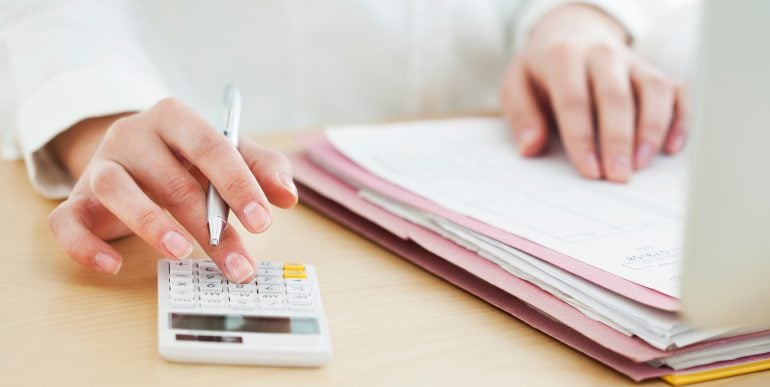What Happens If I Make Only the Minimum Payment on My Credit Card?
It keeps you in debt longer, racks up interest charges and can put your credit scores at risk. But there are steps you can take to help break that cycle.

Many or all of the products on this page are from partners who compensate us when you click to or take an action on their website, but this does not influence our evaluations or ratings. Our opinions are our own.
Making only the minimum payment on your credit card keeps your account in good standing and avoids late fees, but that's about it. It won't get you very far toward reducing your credit card debt.
Of course, there may be times when you can only pay the minimum due — say, you’re experiencing a financial emergency and need to conserve cash. But as a long-term strategy, paying just the minimum is a recipe for serious trouble.
Here’s why, plus some tips for breaking the cycle of paying just the minimum.
If you can't afford to pay a credit card bill due to a crisis, focus on the necessities. Prioritize bills like covering rent or a mortgage, food and utilities, and any must-haves that facilitate maintaining a job, such as transportation, cell phone bills and child care. Making credit card payments is important, but your credit scores can recover. By understanding the consequences of missing a credit card payment, you can make educated decisions that align with your budget.
Paying down debt will take longer
Credit card issuers tend to set minimum payment requirements at rock-bottom levels. You'll generally owe either a fixed amount — often $25 or $40 — or a percentage of the balance, whichever's greater. Some cards require you to pay only 1% or 2% of the balance each month, plus any fees and accrued interest. Yes, you’ll dodge late fees by making just the minimum payment, but doing so will make it harder to pay off the balance.
Most credit card statements have a “Minimum Payment Warning,” which tells you how long it will take to pay off the current credit card balance if you just paid the minimum each month, and how much you’ll pay in interest.
For example, on a recent credit card statement, my statement balance was $2,873.57. The minimum payment warning noted that it would take 11 years to pay off that amount if I made only the minimum every month.
You’ll rack up interest charges
By paying only the minimum amount, you’ll leave a remaining balance on your credit card. Unless your card has a 0% APR period that temporarily waives interest, that balance will be assessed interest, sometimes at rates of 30% or more. And if you keep charging purchases to the card, you'll fall further and further behind.
Assuming a statement balance of $2,873.57 from the earlier example, and that I make only the minimum payment, I’d rack up an additional $6,299 in interest. Put simply: A single purchase not paid off within the first billing cycle can end up costing three times as much as its original price.
Use our credit card interest calculator to figure out how much you’ll owe in interest based on your outstanding balance and purchase APR.
Your credit scores could suffer
When your credit card balances climb, so does your credit utilization ratio — the percentage of available credit that you’re using. And because your credit utilization ratio is a factor in your credit scores, high balances can damage your credit. That makes it harder to qualify for affordable loans and credit cards with the best terms. It can even affect your ability to find a job or rent an apartment, as employers and landlords commonly review applicants' credit.
We recommend aiming for a credit utilization ratio of 30% or less. Say you have two credit cards with a combined credit limit of $5,000. For an ideal utilization ratio, the combined balance shouldn’t exceed $1,500.
Use this credit utilization calculator to determine your ratio.
How to make more than the minimum payment
Understanding why you're paying only the minimum can help you strategize how to stop doing so. Why are you paying the bare minimum? Is it because of a tight budget, a habit that's built over time or something else?
Of course, it’s completely understandable to make the minimum payment if you’re struggling with a hardship beyond your control like a lost job or an emergency. In that case, it’s critical to prioritize essential payments before debt.
In any case, once you’ve figured out what’s holding you back from making a larger payment, determine if there are ways you can make more than the minimum next month.
Consider the following solutions:
Set up automatic payments. If paying the minimum is due to a habit and not lack of funds, set up automatic payments that exceed the minimum payment.
Comb through your budget for spare change. Review your budget, credit card statements and banking statements for possible expenses to trim such as unused subscriptions. Negotiate with companies, or switch providers, to lower your bills.
Increase your income. If your budget doesn't reveal any options, determine whether getting a side job or picking up more shifts at work is feasible.
Exploredebt payoff options. Understand which options are available given your credit scores and financial situation. Perhaps you can qualify for a balance transfer credit card, a personal loan or a debt management plan, for example. If your debt totals more than half your annual income, you can’t pay it off within five years, and it's a source of major stress in your life, you might want to file for bankruptcy. Consult a bankruptcy attorney to learn more about your options.
If you can find a way to pay more than the minimum, set a deadline to be credit card debt-free. Monitor progress along the way to stay motivated and aligned with your goals. If possible, avoid using the card so that the balance doesn’t grow. Also look for opportunities to make a larger payment when possible. If you get a raise, a bonus, a tax refund or another source of funds, think about throwing at least a part of it toward debt.
Find the right credit card for you.
Whether you want to pay less interest or earn more rewards, the right card's out there. Just answer a few questions and we'll narrow the search for you.












